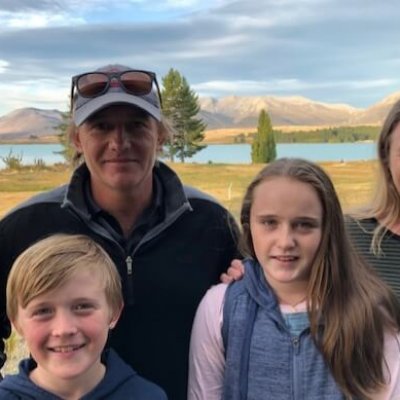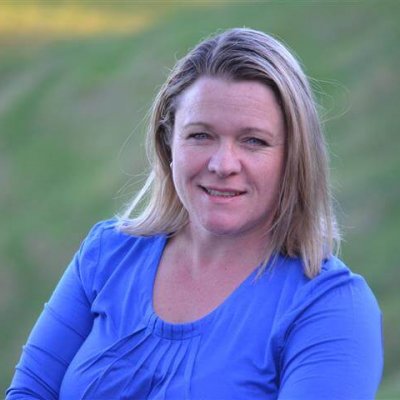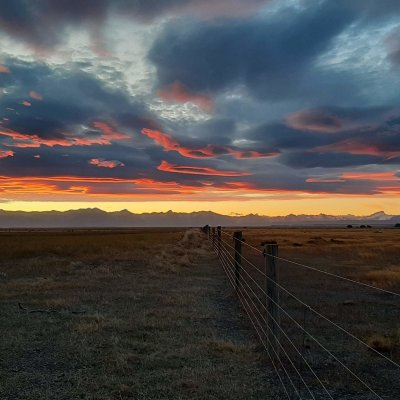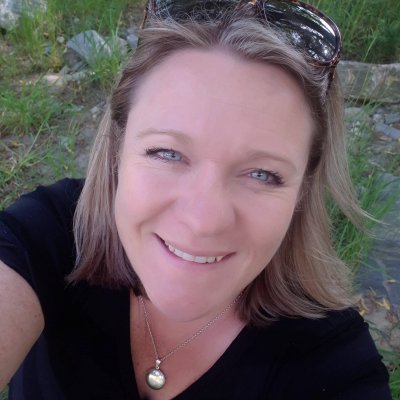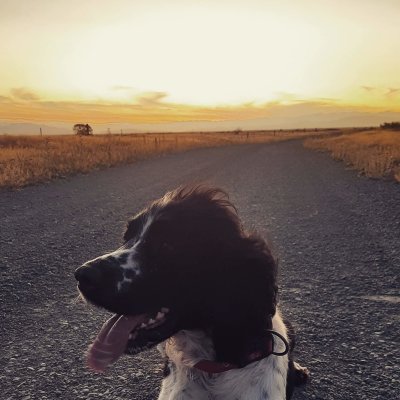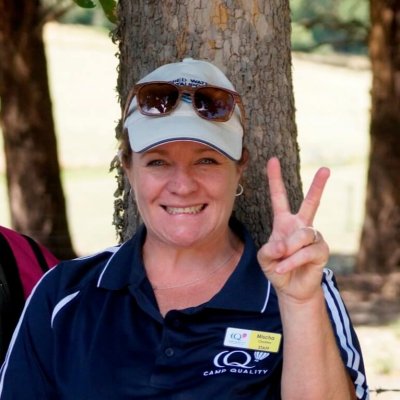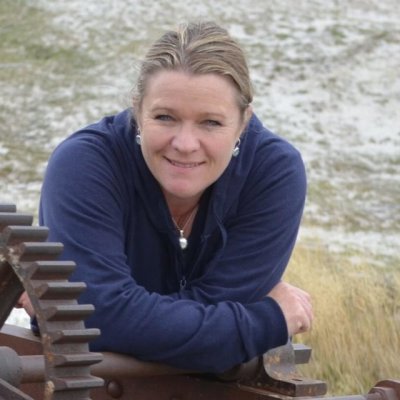Growing up in Central Otago, Mischa Clouston’s parents had their hands in many rural baskets including pig farming, entertaining, contracting, hospitality and nursing. Now a rural nurse herself, Mischa is dedicated to strengthening links between urban and rural areas and bringing down the barriers to achieving rural health goals, with her articles being published in many newspapers across New Zealand. Recently awarded a 20-Year Service Award for her volunteer work with Camp Quality Christchurch, she has devoted countless hours to bringing joy to children living with cancer. Striving to make a difference wherever she goes, Mischa values and understands the rural health sector and just how imperative it is to make health and wellbeing shine in rural communities. Empathetic, committed and passionate, she thrives on learning, and has a strong desire to do her best to help everyone around her. A firm believer that overall health encompasses an array of factors including nutrition, sleep, exercise, awareness and connection, Mischa places significantemphasis on the necessity for good health as a way of enabling safer, more productive workplaces.
When asked what concerned Mischa about the health and safety of those in rural industries and communities, she highlighted her experiences as nurse, seeing farmers who often masked the criticality of their visits to the doctor with the excuse of a wanting a simple blood test. With farmers suppressing their worries ‘underneath the saddle blanket’ in order to be perceived as ‘strong or resilient’, she says that often asking the simple question of ‘how are you doing?’ would lead to a one-hour mental health consult. Wanting the doctor’s door to good health to always remain open, Mischa hopes to see employers take proactive steps to initiate change, by placing more value on health as an immediate priority over the week’s farm duties. She suggests that employers should be implementing occupational health checks, or offering free health advice instead of telling people to ask for time off to go and see a GP. She believes that visiting for a ‘check-up and a chat’ is far more beneficial than to have a concerning appointment about one’s health and how to ‘fix it’ after the fact. Mischa knows the ambulance needs to be at the top of the cliff, ensuring people are able and willing to proactively seek help early and regularly.
How would you describe yourself in three words?
Empathetic, committed and passionate.
Tell me something interesting about yourself...
I grew up in rural Central Otago, New Zealand to parents who dabbled in a few things rurally such as pig farming, a local pub, nursing, entertaining and contracting. Surrounded by rural friends and family, it’s a very normal feeling for me to feel at ease in a rural setting. Upon finishing a year abroad in Japan I decided to become a nurse, a decision I have never, ever regretted. However, once I’d spent some time in rural health, that was me sold. Married to a farmer, we have worked in many rural areas in the South Island and I have always been able to follow my rural health passion. As time has gone by, my passions have intensified which has led me to really understand and value our rural health situation and what ways we can enable health and wellbeing to prevail and shine in our rural sectors. I thrive on learning, being involved in a community’s health and I strive to help make a difference wherever I go. I just have this huge desire to help all the time, and I want to make sure the barriers to achieving good health are disarmed, its parameters are better understood and in a language that fits and connects with those around me.
What's one achievement you are most proud of?
I really enjoyed writing articles for newspapers and organisations in the rural sector. It helped me be creative and resourceful, while getting some poignant messages across. It felt great to have purpose in a life that is so often directed by society and its expectations of you as a mum, wife, parent and community member. I recently got awarded my 20 Years’ Service Award to Camp Quality Christchurch, an organisation I volunteer for providing fun and support for children living with cancer. It is something so dear to me, that I devote many hours to being there for them all year round.
What makes you truly happy?
I love the freedom to just be. I love to be outside in the garden or under the trees taking a walk. I feel so settled in these spaces and love the colours that surround me. I especially love it when I can share these moments with others, be that the children, family, friends or the dog. I adore being around others that fuel me, and I love reaching out to those who need an ear or a shoulder during their biggest challenges or to celebrate their achievements.
What do you love the most about being a rural woman?
I love the way you can live in a small community but have such a huge network. The old saying ‘two degrees of separation’ is very true in a rural setting and although you may not live next door, you know how those people 100 kilometres away are feeling, the challenges they face or the things they need the most. It adds perspective knowing that we are all branches on the same tree, all have a purpose for that tree, but all in different levels, sizes, strength and contributions. We all have a common connection and can offer support that is understood and valued.
Tell me about a time when you felt worried about your own or someone else’s health, safety or wellbeing on the farm, boat or in some other aspect of rural life.
As a rural practice nurse I’ve noticed how many farmers from ‘the back blocks’ really struggle to place value on themselves and their health. Most often they prioritise the farm duties for the week over why they can or can’t make it to a 15 minute appointment with their NP, GP or nurse. I’ve noticed that how over time, their saddle blankets have been lifted and their worries placed under them so that they were out of sight, so nobody could judge them as being not as strong or resilient. I also noticed how in their time of need in order to reach out for help, they would book a simple procedure like a blood test as a cover-up, so nobody would know. They would turn up casually with slight trepidation in their voices for a blood test and when the question “How are you doing?” was asked in general chit-chat, it could open up a completely separate one hour mental health consult. But how special it is, to be that person to offer support and advice in their time of need and help them seek some powerful solutions. I began to place high value on the farmer I might see in a cafe with his wife for lunch often, possibly allowing himself a recharge and a refresh from the daily grind, therefore making him a better husband or father later that day or for the month following.
I am certain we need a slight change in view from employment angles, to support the change in mindset of our current and future generations in the rural industry. Instead of saying to the staff “Make sure you ask for time to see your GP, anytime”, we should look into what big organisations do and get occupational health checks done, or shout them two free medical visits a year. We should be making sure their job isn’t affecting their hearing, that they aren’t being exposed to chemicals, and that it’s not affecting their mental stability or their anxiety, for example. Being proactive towards change and contributing to the positive views on what medical centres can offer is so important.
As a rural nurse I would rather have a positive chat with someone who turned up for a check-up and a chat, than have to have a concerning chat about the state of their ill health and how to fix it. We should be able to support them in seeking good health all the time, not just fixing it after the fact. There are lots of ways to make it accessible, and lots of people doing great things ‘in the back blocks’ to ensure this happens. I worry a lot about our future attitudes towards overall health, which encompasses an array of wonderful contributing factors such as nutrition, sleep, exercise, awareness and connections, however we need to swing it around to ensure we seek help early and more regularly rather than being the ambulance at the bottom of the cliff, so to speak.
What practical things did or could you, your partner and / or others do to prevent someone from getting hurt?
In a rural setting on a busy farm, you can easily slip into the daily grind of what needs to be done, and when. The impromptu gatherings at the end of a week, the relaxed team meetings around the table or a fence post can offer opportunities for staff to feel comfortable in asking for time to see a doctor or prioritise their health as needed. Just because you aren’t limping or wielding a massive injury, doesn’t mean you don’t need a trip to the nearest medical centre. They shouldn’t need to explain why they need to go to a doctor often, or what medication could be for. Why should we call it a ‘sick day’ when we are trying not to get sick? There’s a few things to consider or perhaps chase change in legislation. It’s about feeling that it’s ok to ask for help, or to seek better health outcomes. Perhaps farms need to place a higher value on such topics and not only have a robust health and safety plan, but one that can provide for staff by way of regular onsite checks with a nurse. It’s a small price to pay for great returns and productivity, while making sure those that benefit from it then go forward into their futures placing a high value on good health and better, safer work places.
"Just because you are not limping or wielding a massive injury doesn't mean you don't need a trip to the nearest medical centre."
Mischa Couston, Fairlie, Canterbury NZ Tweet this
Is there a time, place or scenario when your partner / workers are more willing to make changes to the way work is done?
During productive, open team meetings seems to be a great time to enforce change and seek better outcomes. For me, I have a feeling that during a few ‘I told you so’ moments, my views were finally heard, so I shall keep being the squeaky wheel for positive change in rural health attitudes.
If you could give any advice to another rural woman about work health and safety in rural industries, about influencing change in business - or just in general - what would it be?
My advice would be that if you think its paramount, or achievable, then it is. Chase it, back it up, research it, ask around, instigate change and build on experience. We all need to keep working on these sorts of concepts together, collectively, even though individually we can still make a difference. Together though, with common threads and rural speak, we can influence our future farmers who can begin to combine the old school values of hard yakka and grit with balance and sensibility. Then we should be on a path towards positive social change.
